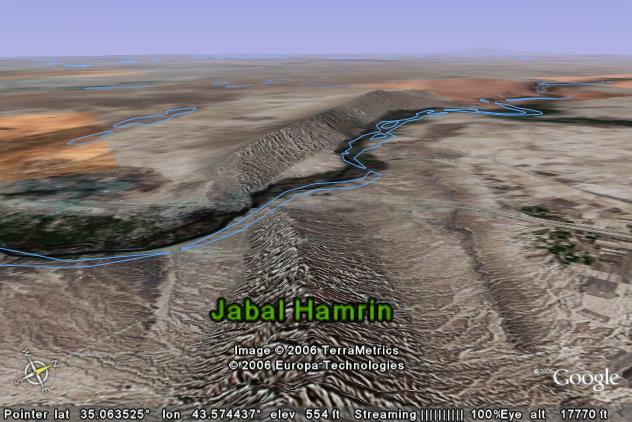by Steven Pressfield
Great initial post about logistics! Here’s a related piece–a comparison between Alexander the Great and Cyrus the Younger and their different strategic/logistical solutions to a similar problem: how to bring an invading army to bear against a defending army awaiting the assault in the vicinity of Babylon, in what was then Mesopotamia (today Syria and Iraq.)
Some of what follows is speculative, as no one knows for certain what Alexander was thinking at every juncture. But it’s based on my research for The Virtues of War, a novel about Alexander. Here’s my take on how the great Macedonian, invading Persia seventy years after Cyrus (and armed with Xenophon’s Anabasis, which he and his generals studied in great depth) chose a different route and strategy than that taken by his predecessor, bound for Cunaxa.
Both Cyrus’ army and Alexander’s crossed the Euphrates at Thapsacus, three or four hundred miles north of Babylon (see map in our Anabasis). Cyrus was coming from the north, Alexander from the south, via Damascus–from Egypt, where he had been crowned Pharaoh and son of Ammon. Alexander was marching to confront Darius III, (grandson of Artaxerxes II, against whom Cyrus and Xenophon campaigned) who was raising an army of a million men. Contingents of horse and foot had been summoned from all over the empire, from as far away as Afghanistan. Alexander’s force numbered about 50,000. Alexander had previously defeated Persian forces twice–at the Granicus River, near Troy, with Darius absent; and at Issus with Darius present and commanding. This coming fight would be for all the marbles.
Alexander held up at Thapsacus and debated with his generals whether they should follow the Cyrus/Xenophon route straight down the Euphrates. Alexander decided against it for a number of reasons. First (here’s where it starts to get speculative), such a choice was expected. Darius would have time to prepare a field that tilted in favor of the Persians’ preferred weapons, their massive numbers of infantry and cavalry and their scythed chariots. Second, the Euphrates route would not compel Darius to move. The Great King could simply sit tight and await Alexander, secure in his bastion at Babylon, with an abundance of riverborne supplies for his troops. Third, the Euphrates route would bring the two armies together too soon for Alexander’s taste. He wanted to stall. He was banking on impatience and discontent gnawing at the morale of Darius’ eager tribal levies, who were not a disciplined modern army but rather horseborne raiders and pillagers.
Alexander’s concept of operations was different from Cyrus’s. Babylon (Cunaxa) was not his ultimate goal. Babylon wasn’t even Persia, it was Mesopotamia, a province. Alexander’s aim was Persepolis in modern Iran, the royal capital of the empire–and the lands further east.
What Alexander feared, entering the heartland of the Persian empire, was having to fight his way across two great and defendable rivers, the Euphrates and the Tigris. He also had no taste for besieging Babylon, which had walls 150 feet high and fifty feet thick and a circuit of forty miles.
Alexander went north and east from Thapsacus instead of south. He didn’t follow the Euphrates. Instead he struck for the foothills of the mountains of southern Armenia. The season was summer coming into fall. Alexander preferred to get provisions for his army by sacking unwalled villages, where the harvest would be stored in garners, rather than cities where the year’s grain would be fortified behind walls. He wanted his horses and pack animals to drink water from mountain streams rather than the silty, unwholesome Euphrates. And he didn’t want his men and beasts marching in 110-degree heat. He also feared the dikes and irrigation channels of the country north of Babylon, by which he must approach his enemy. This kind of terrain could be flooded easily by the defenders, which would create hellish problems for an army advancing across it.
Alexander wanted to get on the far side of the Tigris (to the east of the Euphrates) without having to make a crossing under fire. Once across, he reasoned, Darius would be compelled to come out to meet him, thus fighting according to Alexander’s timetable and on unprepared turf. If Darius failed to face Alexander, he would leave Persepolis and the eastern empire open to the invader’s depredations. More importantly, he would lose prestige in the eyes of his own troops and those of the subject nations serving under him.
The final objective Alexander hoped to achieve by taking the northern route was to vanish off Darius’s scope. He wanted to make the Great King sweat. Where was Alexander? What was he up to? Surely, Alexander reasoned, Darius would be holding many war councils with the impatient, hot-blooded tribal contingents of his empire. Let them sweat too. Let them second-guess Darius. Let them complain about pay and food. Let them demand action.
In the end, Alexander’s plan worked out a little better than Cyrus’s. The Macedonian’s tactics did indeed force Darius to march out from his bastion at Babylon. Darius was compelled to cross the Tigris himself, march his army north some two or three hundred miles to Gaugamela, where he faced Alexander on turf of his own choosing, yes, but not the favored manicured field he was hoping for, at Cunaxa or some other arena closer to home.
Gaugamela became one of the epochal battles of history. Darius’ defeat made him, in the end, the last Great King of Persia. The Achaemenid line as rulers ended with him, as did the Persian empire.
